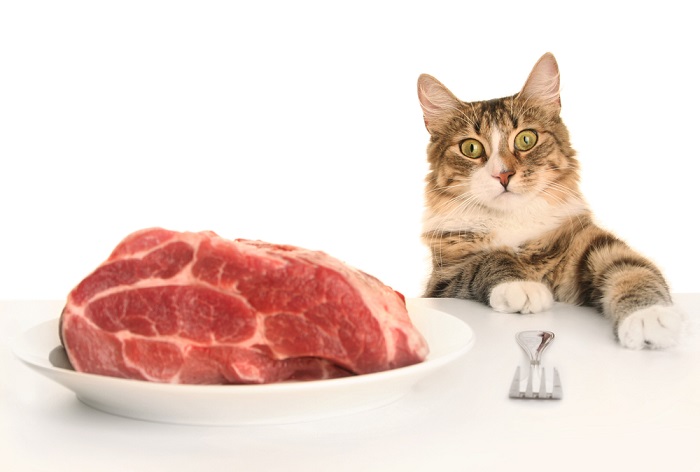Introduction
Cats, cherished members of our families, often pique our interest in sharing our meals. This article explores can cats eat pastrami? and the safety and nutritional aspects of offering pastrami to our feline friends, providing insights into whether this flavorful delight is a suitable addition to their diet.

Understanding Cat Diets
A balanced and species-appropriate diet is essential for a cat’s overall health. While a variety of cat food options exist, the practice of sharing human foods with cats is on the rise.
Pastrami: A Flavorful Delight
Pastrami, celebrated for its savory taste, holds a special place in human cuisine. Before considering sharing it with your cat, let’s delve into the nutritional content of this mouthwatering dish.
The pivotal question arises: Can cats eat pastrami? We’ll analyze potential benefits and risks, scrutinizing the ingredients and additives commonly found in this delectable cured meat.
For responsible pet ownership, this section provides health advice on offering pastrami to cats. Understand the importance of moderation, frequency, and the gradual introduction of new foods to your cat’s diet.

Nutritional Alternatives for Cats
Discover alternative healthy treats for cats that add variety to their diet without compromising their health. Explore options that cater to your cat’s nutritional needs and preferences.
Sharing human foods with cats requires caution and moderation. Learn about the importance of introducing new foods slowly and the specific precautions to take when offering pastrami to your feline companion.
Signs of Allergies or Discomfort
Recognizing signs of allergies or discomfort in cats is crucial. This section will provide insights into common indicators and guidance on what to do if your cat shows adverse reactions to pastrami.

Introducing New Foods Gradually
Explore the gradual process of introducing new foods to a cat’s diet. Gain tips on observing your cat’s response to changes in its culinary routine, ensuring a smooth transition.
Consulting with veterinarians for dietary advice is always recommended. Understand the importance of seeking professional guidance to ensure your cat’s nutritional needs are met.
Personal Experiences
Cat owners often share their experiences with feeding unique foods to their pets. Gain insights into how different cats react to pastrami and the diverse perspectives on this human delicacy.
Cat Preferences and Individual Differences
Just like humans, cats have individual preferences. We’ll discuss how understanding your cat’s tastes can help tailor their diet to meet their unique likes and dislikes.
Can Cats Eat Pastrami?
Summing up our exploration, we’ll provide a clear answer to the question. Can cats safely consume pastrami? The conclusion will be supported by the key points discussed throughout the article.
Conclusion
In conclusion, this article emphasizes the importance of understanding can cats eat pastrami ? and cat’s dietary needs. Responsible pet ownership involves making informed choices to ensure the well-being of our feline companions. Whether it’s pastrami or other human foods, a balanced and thoughtful approach to their diet is paramount.
FAQS
While small amounts of plain, cooked deli meats like turkey or chicken might be offered as an occasional treat, it’s essential to exercise caution. Deli meats often contain additives like salt and seasonings, which can be harmful to cats in excess. Moreover, some deli meats may be processed or high in sodium, which can contribute to health issues like hypertension or kidney problems in cats.
If you decide to offer deli meats, ensure they are free from any added seasonings, spices, or preservatives.
- Cooked Meat: Offer plain, cooked meats like chicken, turkey, or lean beef. Ensure it’s thoroughly cooked and free from any seasonings or additives.
- Cooked Eggs: Scrambled or boiled eggs can provide a protein boost for your cat.
- Plain Rice or Pasta: Cooked plain rice or pasta can serve as a source of carbohydrates.
- Plain Cooked Fish: Boneless, cooked fish like salmon or tuna can be given in moderation.
- Baby Food: Some plain baby foods, especially those containing meat, can be suitable for cats. Ensure they don’t contain any harmful additives.